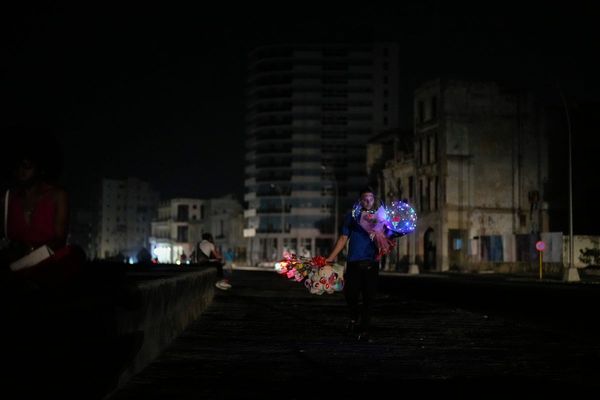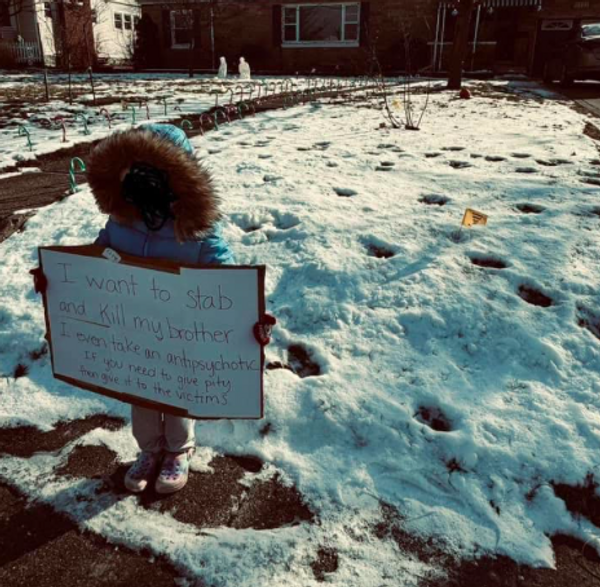While one in six boys worldwide experience sexual abuse during childhood, their experiences are under-researched and under-addressed. Boys’ abuse experiences can have profound and long-lasting impacts upon their mental and physical health, and how they view their abuse experiences, their lives after it, and their disclosures of it, can all be shaped by patriarchal notions and socio-cultural norms of what is expected of boys and men. In an interview, Alankaar Sharma, senior lecturer, School of Health and Society, University of Wollongong Australia, talks to Zubeda Hamid about how dominant notions of masculinity affect survivors and can minimise support, how boys can internalise abuse and how this can manifest in different ways, and the need for research that studies the lived experiences of survivors.
Edited excerpts:
What do you think research on child sexual abuse in India should be focusing on? Is male CSA studied less than those of girls, and is this a global phenomenon?
There’s a robust and long-standing research literature on sexual abuse of girls and women, but it is only in the last 20 to 25 years that we have seriously started looking at male child sexual abuse and I’m talking globally, not in India. A lot of the studies that I read, speaking from an Indian context now, are prevalence studies which go on to establish the fact that it [child sexual abuse] is everywhere. We know that now, so where do we move on? Much of the research there is (there isn’t a lot) is also from a biomedical standpoint. Studies done by paediatricians or psychiatrists or gynecologists or clinical psychologists – there is a place for those studies. They contribute something important to our understanding of CSA, but they’re also limited in what they’re able to examine and explore, because the overwhelming majority of CSA survivors never seek professional support, both due to stigma and because you can’t access what doesn’t exist [as very few services are available].
We need to do more research in social sciences and humanities to know about the lived experience of abuse in Indian societies and cultures. What meanings do survivors make of their abuse experiences in their everyday lives, and how does that influence how they see themselves; how they relate to others in terms of their interpersonal relationships? Most people are not going to disclose [abuse experiences] to a professional. So whom are they talking to? What are those experiences like? What do disclosure recipients say that is unhelpful and also what is helpful? Because if we are going to develop messages for the larger public about how to support survivors, we need to equip people with information about what to say, and how to respond. And so we need to do research that really tries to understand the lived realities of survivors. What interventions are working? What strategies within prevention education are working? And which ones have room to grow?
And also research that actively engages with survivors, that centres survivors’ voices. Biomedical research is not known for always doing that. Some of these studies are sensitive, but many talk of survivors as patients, not necessarily as stakeholders or at the center of this entire phenomena. For example, action research, or participatory research, are collaborative approaches to doing research where it’s not extractive, where survivors have a say in how their experiences are presented to the rest of the world. That is the kind of research I think that’s meaningful, where we need to go, and where we are not at, as of now.
Also Read | Children take centre stage to raise awareness about sexual abuse of boys
Do survivors experience more health issues – mental and physical – even years after their abuse experiences?
Absolutely. There’s research that shows even with older men, that people continue to experience significant physical, mental and sexual health issues for years. That’s not to say that every survivor experiences the same adverse effects or the severity of these effects is the same for all survivors. But many continue to struggle emotionally with these experiences. Some survivors struggle with substance use, for example, or alcohol dependence. It can also contribute towards sexual health issues in terms of sexual compulsivity or addiction or avoidance.
Research shows that women tend to internalise experiences whereas men tend to externalise those experiences. There is greater permissiveness within patriarchal societies for men to talk about sex and sexuality and to engage in sexual activities [and so] it can play out [for men] in relation to, for example, struggling with fidelity in their sexual relationships, having issues such as sexual compulsivity or sexual addiction. And it can be different for women, where the outcome could be more of avoidance [rather] than addiction. It also plays out in relation to patriarchy – a lot of this is very gendered. When a boy gets abused, in a patriarchal society, the meaning that many survivors make [of that] is that their masculinity has been damaged, or eroded on account of being sexually victimised. Because that’s not a role for men. Because men are supposed to be in charge, within the context of sexual contact. But if they’re not, then that is, from a patriarchal lens, seen as feminising or emasculating.
And as a consequence of abuse, then they may try to overcompensate for it through participating in hyper-masculine activities. So for example, participating in violence or aggression against others. This could be physical violence. This could be emotional violence. This could even be sexual violence. It could also be hyper-masculinity in other ways, hitting the gym and building their bodies to fall in line with patriarchal expectations of men. These are examples of externalising behaviours that happen on account of abuse experiences.
Do you think that disclosure is the first step to healing?
It can be. I think there is power in being able to share emotional experiences, physical experiences, vulnerable experiences and being supported. There is power in that. And the reason why people don’t disclose often has to do with shame or guilt. And if people disclose and are supported, then that takes power away from the perpetrator and from those oppressive feelings of shame and guilt. In the last 10-15 years, our understanding of disclosure has also progressed. Our current understanding of disclosure is: it’s not a one time event, you don’t have a life before disclosure and after disclosure. It’s a process, and many disclosures happen over many years. Sometimes a person only discloses to a romantic partner and sometimes a person discloses only to the parent. Sometimes the person only discloses to a therapist. And sometimes there can be years between two disclosures. The support one gets when they disclose, really qualitatively influences, when or how that person is able to disclose again.
Do you think because of the patriarchal nature of our society boys get more of a disbelief/’it was your fault’ reaction when they disclose?
I’m not sure if it’s more or less. I think it’s qualitatively different because there are patriarchal discourses that are oppressive towards women too. Like, what were you wearing? Why were you out? But with men, it is more in terms of: Why couldn’t you say no? Why didn’t you resist? Also, male bodies respond to sexual stimuli differently. So, for example, if a male child had an erection or ejaculated, then that is seen as a sign: you participated in it, and sometimes, the victim-survivors also internalise it, and believe that because it was pleasurable that they must have wanted it or they had a role to play in that experience. So it gets complicated at that level as well.
There’s also this expectation of men to deal with it and recover from it without seeking external support; because they are supposed to be thinking with their brains and not their hearts – and that’s a patriarchal idea – therefore, they don’t need to be seeking, for example, therapy. And there is plenty of mental health research that shows that men struggle with seeking mental health support because of these patriarchal ideas and notions about masculinity. Because you are not supposed to be this emotional creature, or you’re not supposed to dwell on that experience and you should be just OK, move on.
There’s also a greater degree of discomfort, I think when people hear about male child sexual abuse. They don’t have a script for how to respond. What to say? What to do? People get really awkward, uncomfortable about it. Even though they may want to help, they do not know how to. They may see these abuse experiences as homosexual experiences or gay experiences, and therefore not offer the kind of support that they would offer to a victim of violence, or feel really awkward about it because they have these moral ideas about whether homosexuality is appropriate or not. So all these things play into a person’s ability to offer a supportive response to a disclosure.
Do you think schools should be playing a bigger role when it comes to creating awareness about CSA amongst boys students as well?
Absolutely. I think there is now an acknowledgement that schools have a role to play. When we started this work about 20 years ago, schools had a lot of reticence in engaging with this work because the anxiety they had was that if a school talks about it, then that’s an unsafe school, or that if a case comes out, then the school will be painted as unsafe. And it has taken work for activists and organisations to move the discourse forward.
Children spend a lot of time at school and they are also in an environment of learning, and so this is also an opportunity to get to learn about life skills, which is prevention, education. But I think it’s also important to take a broader look at sexual violence prevention and look at issues of sexuality and health and rights. Comprehensive sexuality education also contributes to prevention of child sexual abuse. But often, the way sexuality education happens in schools is either lip service or just as if it’s a biology lesson – not talking about the social context of sexuality, particularly in relation to the life stage where the child is [such as] puberty and experiencing relationships and learning about sexuality.
I think schools also have a role to play in helping students understand their own evolving capacities biologically, socially, culturally, and [to] make sense of them, in ways that are rights-based and health appropriate.
And we don’t talk to boys about sexual abuse. There’s a protectionist discourse about girls, which is patriarchal and problematic because it controls their sexuality, their movements – it puts all those restrictions on them as opposed to empowering them with information, with knowledge, with skills. But at least that discourse exists. With boys that discourse doesn’t exist at all – in this day and age people still have a hard time imagining that boys can be sexually abused too.
“...as a consequence of abuse, then they may try to overcompensate for it through participating in hyper-masculine activities. So for example, participating in violence or aggression against others. This could be physical violence. This could be emotional violence. This could even be sexual violence. It could also be hyper-masculinity in other ways, hitting the gym and building their bodies to fall in line with patriarchal expectations of men. ”Alankaar Sharma, senior lecturer, School of Health and Society, University of Wollongong Australia







